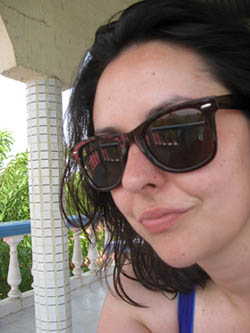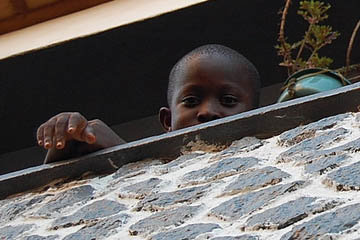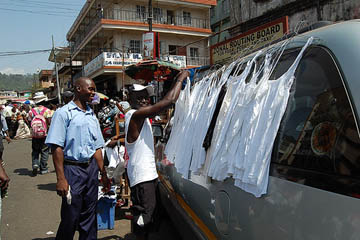
Allison Cross, with some sweet shades.
Landing late at night at Lungi Airport in Sierra Leone, I couldn’t see much of the country where I’d be spending the next seven months.
It was dark as I exited the plane and crossed the tarmac, except for a few fluorescent lights glowing outside the terminal. Riding in an SUV towards the ferry that would take me to the capital Freetown, I could just make out the shapes of palm trees, clotheslines and dwellings in the darkness.

